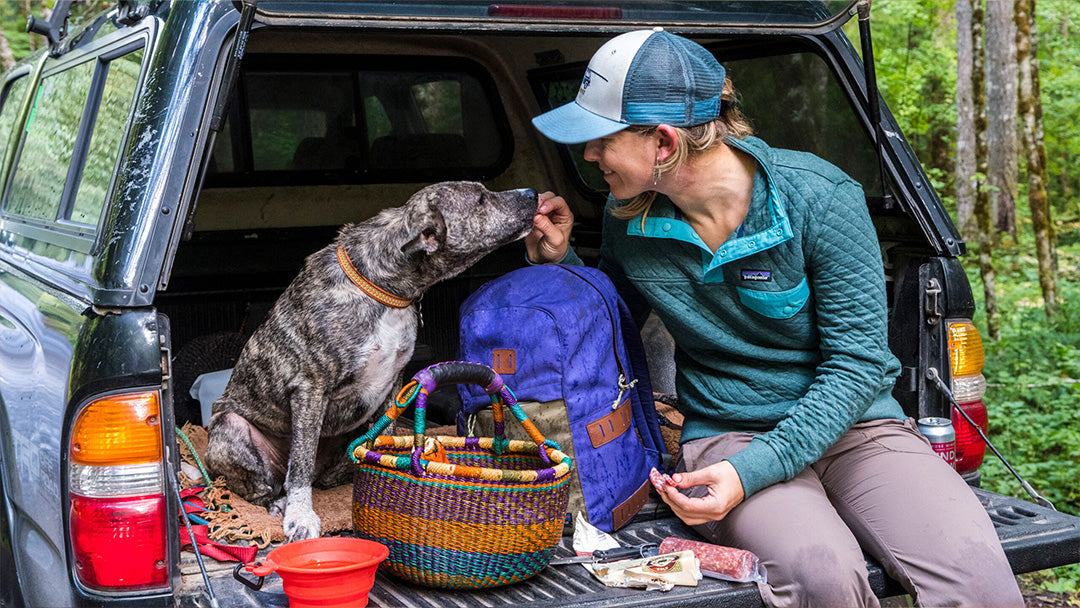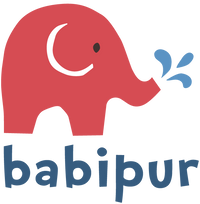Patagonia Women's Regenerative Organic T-Shirt - Open Stripe / Cozy Peach
Patagonia Women's Regular Fit: We recommend choosing your usual size for this item.
Get back to basics with the Patagonia Women's Regenerative Organic Cotton T-Shirt in Open Stripe / Cosy Peach, an everyday crewneck tee in pink with white horizontal stripes.
Ethically and Fair Trade Certified sewn in Peru, this women's casual everyday tee is great for sunny days on its own or layered up in the colder weather. With a self-fabric trim crew neck and taped shoulder seams for a comfortable regular fit. This everyday tee has a straight-fit silhouette and sits at hip length.
The Fair Trade Certification ensures that workers who made this t-shirt were given a premium for their labour. Working with over 150 farms in India, Patagonia are piloting regenerative cotton in their new clothing range. Regenerative farming methods aim to rehabilitate soil, respect animal welfare and improve the lives of farmers. Implementing techniques like 'pollinator strips' and 'trap crops' naturally attracts bees and butterflies, and diverts pests away. These areas of farmland are very biodiverse and generate more nutrient-dense soil through photosynthesis and the reduction of tillage, overgrazing and churning.
- Made from 100% regenerative organic pilot cotton
- Pre-washed for extra softness
- Fair Trade Certified
- Classic crew neck shape
- straight-fit silhouette
- Hip-length
- Self trim neckline
- PVC and Phthalate-Free
Materials: 4.6-oz 100% Regenerative Organic Certification Pilot Cotton jersey
Regenerative Organic Certified™ Cotton
“Farm like the world depends on it”
Regenerative Organic Certified™ cotton is the next level of organic cotton, produced using a variety of methods which aim to have a bigger impact in the fight against global warming. Patagonia piloted the first crop of Regenerative Organic Certified™ Cotton with 150 farmers in 2018, they now have over 800 farmers implementing the highest organic standard in cotton. They achieve these standards through a variety of methods which include:
- Organic - No synthetic fertilisers, pesticides, GMOs, growth hormones or antibiotics
- Cover Crops - Farmers grow cover crops additionally to their cash crops to help increase soil organic matter, reduce erosion and shut carbon away in the soil
- Compost - Using waste from the farm, farmers convert it to compost and it acts as a natural fertiliser and pesticide for the soil
- Crop Rotation - Crops are rotated one year to the next using a systematic approach
- Intercropping - To improve soil health over time, multiple types of crop are planted closely together, it also increases yields.
- Low-to no-tilling - Tilling is common practice in farming, it involves digging, stirring and turning the soil. Reducing this can help the soil more organic matter, more water and potentially store more carbon
Patagonia is one of the founders of the Regenerative Organic Alliance and Regenerative Organic Certified™, once again leading the way in an area of farming and production which will have a big impact on the planet. Its 3 main pillars are; Soil Health, Animal Welfare and Social Fairness.
With some farming practices having a catastrophic impact on the environment (conventional agriculture produces up to 25% of the emissions which are driving the climate crisis), Regenerative Organic Certified™ are pushing for the highest standards in the world, reducing greenhouse gas emissions and aiming to trap more carbon.
We're proud to be stocking Patagonia at Babipur, the pioneers of responsible business practices! Patagonia were one of the earliest adopters of organic cotton recognising the damage that pesticides had on the earth and making the switch back in 1994. A core value is to make the very best quality product because better products last longer and the longer products last the less that have to be made. Materials and manufacturing are carefully considered to ensure minimal impact from creation through to disposal.
Patagonia's continued efforts to reduce and even reverse the impacts of commercial activities is awe-inspiring. Investment in environmental causes and activism, sourcing of reused, recycled and low impact materials, fair trade certifications and initiatives to help other companies achieve higher sustainability levels, Patagonia lead the way. Not satisfied with pushing for change within their own industry Patagonia have begun a food division looking to change farming practices for the better too. Now a global brand using their increased influence for the greater good and still independently owned.



















